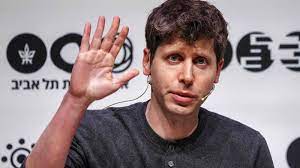STOCKHOLM (Reuters): Microsoft-backed OpenAI, the company behind ChatGPT, has no plans to go public any time soon, Chief Executive Sam Altman said at a conference in Abu Dhabi.
“When we develop superintelligence, we are likely to make some decisions that most investors would look at very strangely,” Altman said.
“I don’t want to be sued by … public market, Wall Street, etc, so no, not that interested,” he said in response to a question on whether he will take OpenAI public.
OpenAI has so far raised $10 billion from Microsoft (MSFT.O) at a valuation of almost $30 billion as it invests more in building computing capacity.
“We have a very strange structure. We have this cap-to-profit thing,” he said.
OpenAI started off as a non-profit organisation but later created a hybrid “capped-profit” company, that allowed it to raise external funds with a promise that the original non-profit operation still benefits.
While building their artificial intelligence capacities, Altman and many prominent scientists involved with creating and marketing the technology have warned of the threat it poses, particularly content-creating generative AI such as ChatGPT, with some equating it to extinction-level risk. They have demanded regulation.
Altman is on a whirlwind tour across the world, meeting heads of states of several countries, and was in the United Arab Emirates on Tuesday. He plans to travel next to Qatar, India and South Korea.
EU CONTROVERSY
While in Europe he got into controversy for saying OpenAI may leave the region if it becomes too hard to comply with planned laws on AI, inviting criticism from several lawmakers, including EU industry chief Thierry Breton. OpenAI later reversed the stance.
“We did not threaten to leave the EU,” Altman said on Tuesday. “We expect to be able to comply. There’s still more clarity we are waiting for on the EU AI Act, but we are very excited to operate in Europe.”
The EU is working on a set of laws to govern AI, including proposals that would force any company using tools like ChatGPT to disclose copyrighted material used to train its systems.
OpenAI does not disclose that data on its latest AI model, GPT 4.
Altman, however, found support from EU tech chief Margrethe Vestager, who said she did not perceive Altman’s comments as a threat but as a promise to do his best.
“The number one thing about this technology that people don’t understand is that in a few years, GPT 4 is going to look like a little toy that was not that impressive,” Altman said referring to the growth of AI.
“There will be images, audio, video, text, computer programming, all together.”
Many experts have cited a potential threat to jobs being replaced by AI including in sectors such as transport and logistics, office support and administration, production, services and retail.
The jobs of the future would look “super different than many of the jobs of today”, Altman said, adding that there would be opportunities too.







